Official Spanish Transmission
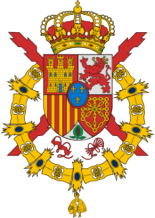
His Most Catholic Majesty Felipe II de Castilla y Aragon, King of Leon, King of Aragon, King of Castille, King of Sarmatia, and Emperor of the Holy Spanish Empire.
TO: Sapa Inca, President Akbar, Emperor Jian Fu Lin, Captain William Manning, Hochraat der Germania, Czarina Catherine, and King Jefferson of America.
FROM: Duke Alfonso Guzman de Olivares, Spanish Foreign Minister.
It is with great sorrow that I inform your excellency of the passing of our glorious Emperor Carlos V de Castilla y Aragon. Carlos V was one of Spain's greatest leaders, and it is a tragedy that this should befall the house of Emperor Felipe II.
We hope the rulers of your great nations could take a moment of silence out of respect to the fallen Emperor, and urge the nations of Terra to see how fragile life can be, and how important it is to maintain the peace we have experienced over the past few decades.
Thank you,
Alfonso Guzman de Olivares, Duke of Toledo.

His Most Catholic Majesty Felipe II de Castilla y Aragon, King of Leon, King of Aragon, King of Castille, King of Sarmatia, and Emperor of the Holy Spanish Empire.
TO: Sapa Inca, President Akbar, Emperor Jian Fu Lin, Captain William Manning, Hochraat der Germania, Czarina Catherine, and King Jefferson of America.
FROM: Duke Alfonso Guzman de Olivares, Spanish Foreign Minister.
It is with great sorrow that I inform your excellency of the passing of our glorious Emperor Carlos V de Castilla y Aragon. Carlos V was one of Spain's greatest leaders, and it is a tragedy that this should befall the house of Emperor Felipe II.
We hope the rulers of your great nations could take a moment of silence out of respect to the fallen Emperor, and urge the nations of Terra to see how fragile life can be, and how important it is to maintain the peace we have experienced over the past few decades.
Thank you,
Alfonso Guzman de Olivares, Duke of Toledo.
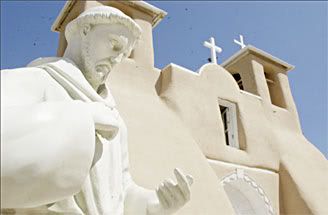 The boy and his mother left the church early that morning, the sky was clear and the weather was beautiful int he Spanish colony of San Pedro. It was a new land, and a fresh begining for many Spaniards who found it difficult to progress in bustling cities of the old country. Juana was no different, she was widowed when her husband died taking the city from the Sarmatians, and decided that she had nothing left in Spain. So she traveled with her infant son Simon, who nearly died twice on the journey. "Mommy, why is that man yelling?" the young boy said pointing to a man in the street, handing out leaflets and urging all 'true Spaniards' to join his group.
The boy and his mother left the church early that morning, the sky was clear and the weather was beautiful int he Spanish colony of San Pedro. It was a new land, and a fresh begining for many Spaniards who found it difficult to progress in bustling cities of the old country. Juana was no different, she was widowed when her husband died taking the city from the Sarmatians, and decided that she had nothing left in Spain. So she traveled with her infant son Simon, who nearly died twice on the journey. "Mommy, why is that man yelling?" the young boy said pointing to a man in the street, handing out leaflets and urging all 'true Spaniards' to join his group.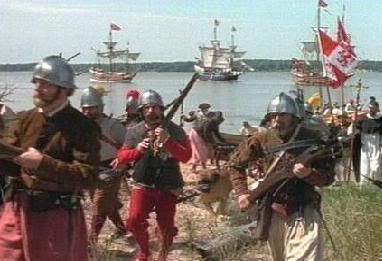 General DeMores and Governor Cristobal Colon watched the "fresh meat," as new arrivals in New Spain were known, coming from the ships. It was quite a collection of soldiers, mercenaries, settlers, merchants, and missionaries. Two new colonies had been established; Valencia which would serve as an important port city being located on a harbor, and Zaragosa which was the newest Spanish colony in Concordia.
General DeMores and Governor Cristobal Colon watched the "fresh meat," as new arrivals in New Spain were known, coming from the ships. It was quite a collection of soldiers, mercenaries, settlers, merchants, and missionaries. Two new colonies had been established; Valencia which would serve as an important port city being located on a harbor, and Zaragosa which was the newest Spanish colony in Concordia.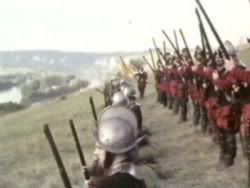 The army of General DeMores took up positions surrounding the city and established control of traffic in and out of San Pedro. When the rebels attempted a public oration, which is NOT against Spanish law (we do have the Free Speech civic after all), Colon requested that DeMores' men move in for the kill. The armies of DeMores arrested, jailed, and killed many members of the rebel movement, and many others who were either suspected of involvement or simply had contact with others who were suspected of involvement. The people of the city became fearful of Colon's rule, and many others joined the rebel movement, which became more secret and moved its base of operations to the new colonies of Zaragosa and Valencia. The Governor had now dispersed a group he once had right under his nose, and realized that if he didn't get more support from the Imperial authorities he would be known as the man who lost New Spain.
The army of General DeMores took up positions surrounding the city and established control of traffic in and out of San Pedro. When the rebels attempted a public oration, which is NOT against Spanish law (we do have the Free Speech civic after all), Colon requested that DeMores' men move in for the kill. The armies of DeMores arrested, jailed, and killed many members of the rebel movement, and many others who were either suspected of involvement or simply had contact with others who were suspected of involvement. The people of the city became fearful of Colon's rule, and many others joined the rebel movement, which became more secret and moved its base of operations to the new colonies of Zaragosa and Valencia. The Governor had now dispersed a group he once had right under his nose, and realized that if he didn't get more support from the Imperial authorities he would be known as the man who lost New Spain.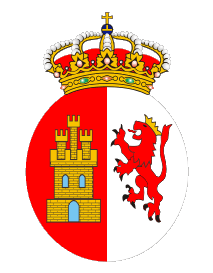
 [/QUOTE] [/QUOTE]
[/QUOTE] [/QUOTE]
 As the first nation to fully embrace the virtues of liberalism (Indianism) and the first nation to become a successful republic, Indians have grown accustomed to rapid change. Society is shaped and reshaped each generation. This climate wedded with the attitude of free inquiry and free exchange of ideas produced a great deal of innovation that led to developing and harnessing this new technology.
As the first nation to fully embrace the virtues of liberalism (Indianism) and the first nation to become a successful republic, Indians have grown accustomed to rapid change. Society is shaped and reshaped each generation. This climate wedded with the attitude of free inquiry and free exchange of ideas produced a great deal of innovation that led to developing and harnessing this new technology. Combine a large population not chained to the land with a spirit of innovation and freedom and you have all the factors ripe for and Industrial Revolution.
Combine a large population not chained to the land with a spirit of innovation and freedom and you have all the factors ripe for and Industrial Revolution. 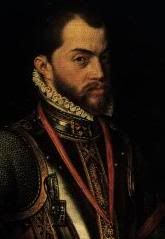 The reign of Felipe II was marked with much success; the Spanish army had been reorganized and re-equipped in response to gross militarization around the world, the arts took a spot of pre-eminance with his construction of the Hermitage and the Globe Theatre in Seville, the New World territories expanded greatly, he managed to marry his son Felipe III to Czarina Catherine of Russia, and appeased many rebellious figures as he broke ties with the Pope in Yaroslav'l but maintained his staunch Catholicism (Spanish troops continue to defend the holy city). Under his reign he finished the palace of Versailles, which increased the ability of Imperial authorities to manage their vast Empire. Unfortunately for Spain, fate would take the great King...
The reign of Felipe II was marked with much success; the Spanish army had been reorganized and re-equipped in response to gross militarization around the world, the arts took a spot of pre-eminance with his construction of the Hermitage and the Globe Theatre in Seville, the New World territories expanded greatly, he managed to marry his son Felipe III to Czarina Catherine of Russia, and appeased many rebellious figures as he broke ties with the Pope in Yaroslav'l but maintained his staunch Catholicism (Spanish troops continue to defend the holy city). Under his reign he finished the palace of Versailles, which increased the ability of Imperial authorities to manage their vast Empire. Unfortunately for Spain, fate would take the great King...
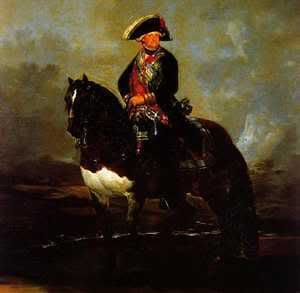 Carlos VII (seen here on a horse with a large hat) was not the best choice, but was the only choice. He spent most of his time away from his family studying at multiple Universities that he deemed "useless," he had no interest in following his father's footsteps as a military man, and generally took to banking and finance for his own personal wealth. He spent most of his young life traveling on his parent's dime to such places as Delhi, Berlin, London, and the beaches of New Spain. In his defense he was an amazing swordsman, and was well-liked by many in the Spanish court. Carlos VII initially wanted to turn down the offer, but his father explained to him the gravity of the situation...
Carlos VII (seen here on a horse with a large hat) was not the best choice, but was the only choice. He spent most of his time away from his family studying at multiple Universities that he deemed "useless," he had no interest in following his father's footsteps as a military man, and generally took to banking and finance for his own personal wealth. He spent most of his young life traveling on his parent's dime to such places as Delhi, Berlin, London, and the beaches of New Spain. In his defense he was an amazing swordsman, and was well-liked by many in the Spanish court. Carlos VII initially wanted to turn down the offer, but his father explained to him the gravity of the situation...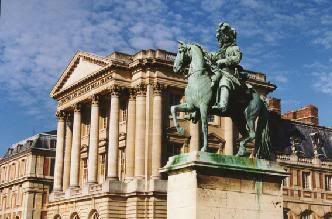 On April 30th, 1483 in Versailles Carlos VII would enter a mere nobleman, and leave Emperor of Spain. One of Terra's largest, and most powerful Empires. All of Spains Kingdoms and holdings would become his. He entered the throne room dressed in full military regalia, with a ceremonial wig upon his head, carrying the ancient sword of El Cid. The official anthem of the House of Bourbon played in the background as his friends and fellow noblemen watched him approach Archbishop Horatio III, who held the Imperial crown of Spain.
On April 30th, 1483 in Versailles Carlos VII would enter a mere nobleman, and leave Emperor of Spain. One of Terra's largest, and most powerful Empires. All of Spains Kingdoms and holdings would become his. He entered the throne room dressed in full military regalia, with a ceremonial wig upon his head, carrying the ancient sword of El Cid. The official anthem of the House of Bourbon played in the background as his friends and fellow noblemen watched him approach Archbishop Horatio III, who held the Imperial crown of Spain.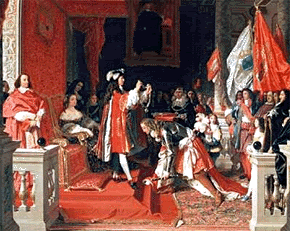 The Archbishop then placed the crown upon Carlos VII, the crowd began to cheer in praise of the new Emperor "Now my son, you will rise as Emperor, greet your subjects!" the Archbishop said as he placed a hand on Carlos' shoulder, urging him to rise.
The Archbishop then placed the crown upon Carlos VII, the crowd began to cheer in praise of the new Emperor "Now my son, you will rise as Emperor, greet your subjects!" the Archbishop said as he placed a hand on Carlos' shoulder, urging him to rise. The soldiers stood waiting, making sure the road was safe from rebels or other illegal traffic "How long until the next group arrives?" Hector asked, digging the butt of his gun into the ground.
The soldiers stood waiting, making sure the road was safe from rebels or other illegal traffic "How long until the next group arrives?" Hector asked, digging the butt of his gun into the ground.
Comment